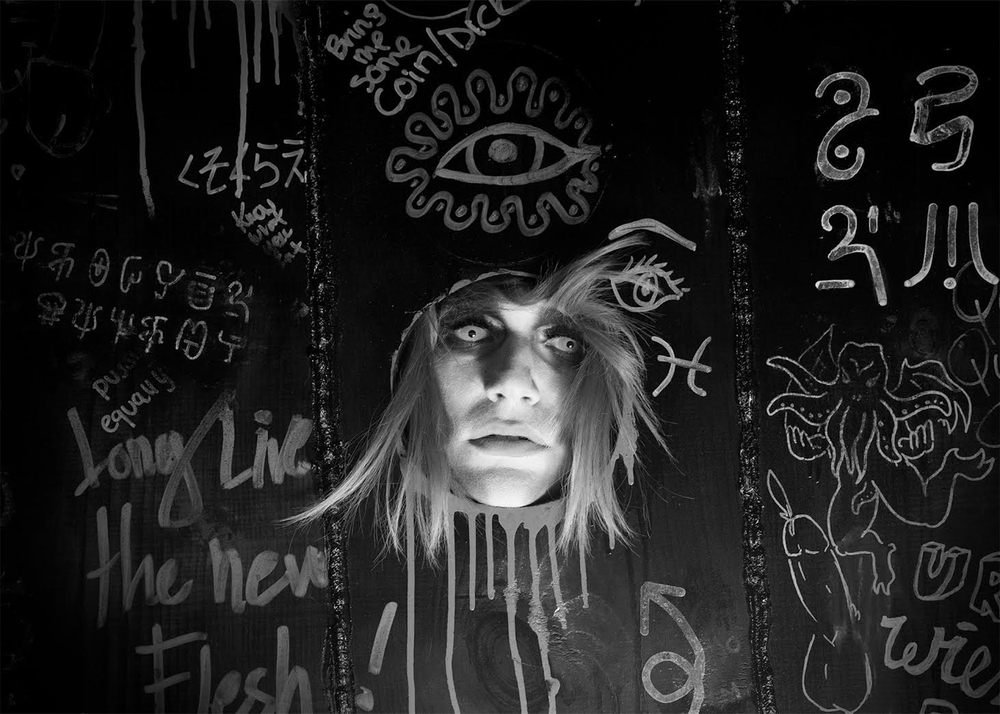
CRUISING THE NECROPOLIS
first performed on February 21, 2020
Troupe429
performed twice in 2020
KAMIKAZE JONES
The Anchoress Syndicate
Norwalk, CT
512938489m512938489r512938489.512938489k512938489a512938489m512938489i512938489k512938489a512938489z512938489e512938489j512938489o512938489n512938489e512938489s512938489@512938489g512938489m512938489a512938489i512938489l512938489.512938489c512938489o512938489m
www.instagram.com/kamikazejoness/
CRUISING THE NECROPOLIS
KAMIKAZE JONES
After a formative experience at what I considered to be a haunted adult video arcade, I became interested in exploring the gloryhole as a means of divination; a scrying portal that serves as a charged conduit for the myriad ghosts of queer consciousness.
What kind of arcane secrets do we implicitly learn from the mystical energy suffused in these historical cruising spaces? How do we continue to honor these marginalized histories and erotically ritualize their power?
With a burgeoning mythology in mind, I began building my own site-specific gloryholes and immersed myself in the persona of The Gloryhole Witch, who would emerge from the numinous depths of the bathhouse to read erotic fortunes and wail her sorrowful songs. I would invite spectators to witness my oracular prowess, regale them with supernatural anecdotes, administer poppers and tinctures to those of them who came afflicted, and allow them to inscribe ‘sacred latrinalia’, including sigils and pornographic affirmations, on my walls.
The first installation occurred at Troupe429, during a party dedicated to the cinema of Paul Morrissey and Andy Warhol, and culminated in an improvised vocal piece in which I channeled the orgasmic yearnings of the damned. The second performance occurred at the 3rd annual My Smutty Valentine, an event hosted at Rubulad by my poetry and performance collective The Anchoress Syndicate. My Smutty Valentine is a celebration of queer obscenity, with all proceeds in 2020 going to GLITS. There I sang a deconstructed interpretation of “First Time Ever I Saw Your Face” made popular by Roberta Flack, a song that I wished to invoke for its somatic and devotional qualities. This was only two weeks before the COVID-19 pandemic challenged the possibility of contact encounters, complicated the queer legacy of risk assessment, and recalibrated our notions of intimacy.